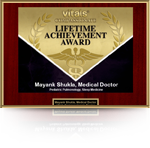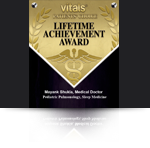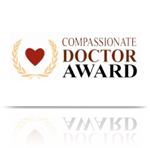Ready to Schedule an
Appointment with Dr. Shukla?
Pediatric Sleep Care
Pediatric Sleep Care
Sleep may very well be the most important part of your child’s day. Not only do physical and mental functions have a chance to rest and repair, but these quiet hours of the night are crucial for your little one’s development throughout childhood. Sleep disorders in children often go undiagnosed because many children’s sleeping habits tend to be unpredictable by nature, so many parents shrug off restless nights as kids being kids. However, there are many pediatric sleep disorders that, if left untreated, have the potential to seriously affect childhood development. Get the best pediatric sleep care NYC has available with highly recognized pulmonologist Dr. Mayank Shukla.
Dr. Shukla is the leading pediatric sleep doctor in New York City, offering a diverse and unique blend of training and certification that cannot be found elsewhere. A board certification in sleep medicine, vast knowledge of allergy treatments, and specialization in pediatric pulmonology make Dr. Shukla the premier destination for children with mild to severe sleeping disorders. On average, children can expect to spend 40% of their childhood asleep. As we transition into adulthood and life starts to take over, this percentage shrinks and shrinks, leaving us exhausted and fatigued. This is why it is so important that we make sure our children achieve the best sleep possible to pave the way for future healthy lifestyle habits and a rested mind.
Why Sleep is So Important
Our sleep cycle or Circadian Rhythm is responsible for the release of certain hormones, regulating body temperature, and dictating our sleep and wake cycles throughout the day. This cycle is determined by the light and darkness in our environment, in the case of humans, the sun in a 24-hour day. During the hours of the night when we are asleep, the brain is able to store memories and valuable information it has taken in throughout the previous day. This is a crucial step of the learning process that cannot be replaced. Additionally, this is the time when muscles have the best chance at repairing themselves. After a long day of play or sports, a good night’s rest is truly the best remedy.
Tips for Healthy Sleep
- Establish a consistent bedtime every night
- Limit in-bed activity before sleep (television, homework, reading, etc.)
- Avoid caffeine less than 6 hours before bed
- Maintain a dark bedroom at a comfortably cool temperature
- It may be helpful to remove any clocks in the room, as staring at the time can be distracting
- Avoid heavy meals right before bedtime
There are two main sleeping processes that occur when we crawl into bed after a long day: non-rapid eye movement (NREM) and rapid eye movement (REM). During non-rapid eye movement sleep, our energy is recovered, hormones are released, tissue growth occurs, and our muscles receive improved blood supply. This stage of sleep is critical for kids’ mental development and physical growth. During REM sleep, our minds become more active and our heartrates increased. This is when dreaming occurs, usually in different intervals throughout the night.
Without a healthy night’s sleep, children are more prone to behavioral problems, accidents or injuries, trouble concentrating, slow reaction times, and difficulty memorizing or learning new information. While trouble sleeping doesn’t always point to a sleep disorder, it is important to be aware of what’s out there so you can keep your eye out for symptoms that may need to be treated by a pediatric sleep doctor.
Arousal Disorders
One of the more common sleep disorders in children are arousal disorders. This occurs when a child is only partially awoken from a deeper sleep and display signs of wakeful activity. Often times the child appears disoriented and behaves erratically, disregarding directions from parents and usually not recalling their behavior the next morning. During this state of being partially awake and partially asleep, kids can exhibit several abnormal behaviors.
Milder signs of an arousal disorder include mumbling or talking during sleep and even sitting up in bed during the night. More severe symptoms have been known to be incessant crying and sleep walking. Episodes most commonly take place only once in a night, but multiple nightly episodes are not unheard of. There are several health problems that can contribute to triggering these arousal episodes. Migraines, restless leg syndrome, fever, and irregular sleep patterns are all possible culprits that trigger arousal disorders.
Pediatric Sleep Apnea
Sleep apnea occurs when the soft tissues found in our throat relax, obstructing our upper airway. When our airway is obstructed during the night, the oxygen levels in our body decrease. This causes the individual to wake up multiple times during the night, but only long enough to resume normal breathing. Not only does this disorder present the explicit danger of cutting off our oxygen supply, but fragmented sleep patterns plague its victims with extreme daytime fatigue.
Symptoms of sleep apnea in children are typically subtler, and therefore often overlooked. Not all children with pediatric sleep apnea experience snoring or are overweight, which are both common signs and risk factors of patients with this sleep disorder. This does not mean you should discount snoring as a symptom of sleeping problems, as snoring in young children is never normal.
Possible symptoms to look out for include:

- Restless sleep
- Trouble concentrating or paying attention during the day
- Snoring
- Mouth breathing
- Easily distractible or hyperactive behavior
- Enlarged tonsils
If you think your child may be exhibiting signs of pediatric sleep apnea, it is best to contact your healthcare professional for proper pediatric sleep care. For 15 years, Dr. Shukla has been diagnosing and treating children with sleeping disorders to incredibly satisfying and rewarding results. Concerned parents deserve trustworthy reassurance and their kids deserve the best in personalized, pediatric care.
Insomnia
Children can have trouble sleeping for a variety of reasons. Insomnia is a sleep disorder in which it is extremely difficult to fall asleep and stay asleep. Insomnia can be either short term, lasting for just a few days or long term, persisting over the course of months at a time. Stress has been known to be a significant factor in keeping children from achieving a restful night’s sleep. Bullying at school, family problems at home, a recent move. These are things that put your child under stress and contribute to insomnia. Additionally, too much caffeine or side effects of certain medications have been known to be disruptive of children’s sleep patterns. Insomnia can be difficult to diagnose because there is not test for it. Most commonly, it is treated based on symptoms.
If you believe your child may be experiencing insomnia in one form or another, keep an eye out for some of these symptoms:
- Inability to fall or stay asleep
- Daytime fatigue
- Mood swings/Irritability
- Stress about not being able to fall asleep
- Depression
- Disciplinary problems
Pediatric Sleep Care NYC
A healthy night’s sleep is dependent on our body’s internal clock. Our boy’s internal clock is regulated by our circadian rhythm. It is because of these processes, that we go to bed when we do and wake up naturally. Unfortunately, these biological operations are interrupted by sleeping disorders. For kids especially, extra care must be taken to ensure they’re getting the rest their growing bodies need. Dr. Shukla has been diagnosing and treating pediatric sleep disorders in New York City for countless satisfied parents and children. Get the best pediatric sleep care NYC has to offer for your child with Dr. Shukla.
Here at the Asthma, Allergy and Sleep Center of New York, we provide you with a personalized, boutique approach to health care and pediatric pulmonology all under one roof. We emphasize prevention and use our advanced diagnostic technologies to give you and your child the best possible care. Whether you need to see a sleep doctor, need allergy treatment or need a pulmonologist, contact Dr. Shukla’s New York offices today for an appointment.
Awards and Recognition
Dr. Mayank Shukla Top-Rated Pulmonologist 2018 - 2024














